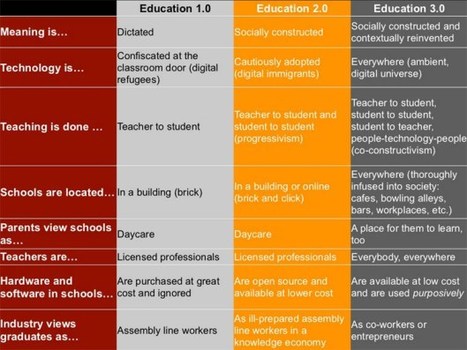An algorithm that assesses the quality of Wikipedia articles could reassure visitors and help focus editors on entries that need improving.
Research and publish the best content.
Get Started for FREE
Sign up with Facebook Sign up with X
I don't have a Facebook or a X account
Already have an account: Login
All about Educational Innovation, new tools & trends, MOOCs in Higher Education
Curated by
Alfredo Corell
 Your new post is loading... Your new post is loading...
 Your new post is loading... Your new post is loading...
|
Jeffrey Miles's curator insight,
March 17, 2014 11:01 PM
The idea of web 2.0, and education 3.0 is interesting to me... what will they be called in the future if they are to become the norm? |














Today, we get an answer thanks to the work of Xiangju Qin and Pádraig Cunningham at University College Dublin in Ireland. These guys have developed an algorithm that assesses the quality of Wikipedia pages based on the authoritativeness of the editors involved and the longevity of the edits they have made.
“The hypothesis is that pages with significant contributions from authoritative contributors are likely to be high-quality pages,” they say. Given this information, visitors to Wikipedia should be able to judge the quality of any article much more accurately.